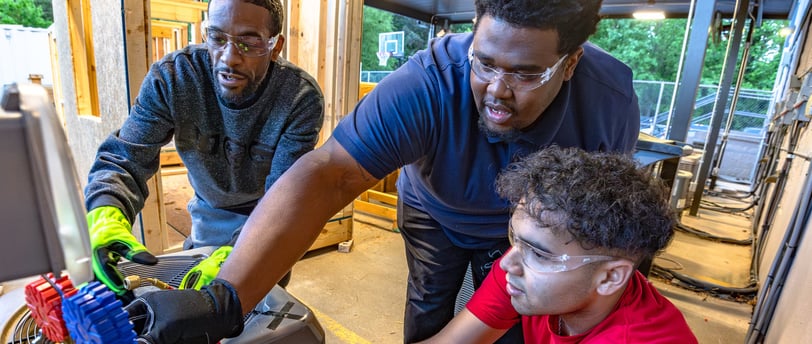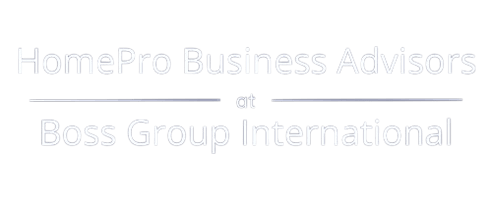

Transitioning from Owner-Operator to Owner: Why It’s Key Before Selling
Many home service business owners take pride in being deeply involved in their company’s daily operations. Whether you run a plumbing, HVAC, landscaping, or roofing business, chances are you’ve built your success by working hands-on in the field, managing customer relationships, and making key decisions yourself. While this level of involvement is essential in the early stages of growing a business, it can become a major obstacle when it’s time to sell.
One of the biggest challenges in selling a home service business is demonstrating to potential buyers that the company can operate successfully without the current owner’s direct involvement. Buyers are looking for businesses that have strong systems, reliable employees, and well-documented processes so that the transition to new ownership is smooth and low risk. If your business depends too much on you, it may reduce its attractiveness, limit the pool of interested buyers, and ultimately lower its value.
Shifting from being an owner-operator, someone who is heavily involved in day-to-day tasks, to a true business owner who oversees operations from a higher level is one of the smartest moves you can make before selling. This transition takes time, but it can dramatically increase the value of your business and make it far easier to sell when the time comes.
Why Owner Dependence Hurts Business Value
When a potential buyer evaluates a business, one of their primary concerns is continuity. They want to know that the company will continue running smoothly after the current owner steps away. If an owner is deeply involved in managing crews, scheduling jobs, handling customer service, or making key operational decisions, the buyer may see this as a major risk.
Buyers typically look for businesses with strong systems and a capable team in place. If an owner is the face of the business and the primary reason customers choose the company, it raises concerns about what will happen when that owner is no longer there. Will customers leave? Will employees struggle without daily direction? Will critical business relationships be lost? These uncertainties can lead buyers to lower their offer or walk away altogether.
Additionally, banks and lenders are more hesitant to finance deals for businesses that are too dependent on the owner. If a buyer needs a loan to purchase the company, lenders will want assurance that the business has a strong structure in place that allows it to function independently. The less reliant the company is on the owner, the more confident both buyers and lenders will be in its long-term stability.
Steps to Transition Away from Daily Operations
The process of transitioning from an owner-operator to a true owner should begin well before you plan to sell your business. Making this shift takes time, as it involves developing employees, documenting processes, and changing how your business is structured.
One of the first steps is identifying the tasks and responsibilities that only you handle. Are you the one scheduling jobs, making purchasing decisions, or handling customer complaints? Do employees rely on you to solve problems, or can they make decisions on their own? Creating a list of your daily, weekly, and monthly responsibilities will help you see where you need to start delegating.
Building a strong management team is essential for reducing owner dependence. If you don’t already have key personnel in leadership roles, it’s time to start developing them. Promoting experienced employees into management positions or hiring externally can help distribute responsibilities and ensure that operations don’t rely on you alone. Giving managers authority to make decisions and solve problems without your direct involvement will create a stronger, more self-sufficient business.
Documenting systems and processes is another critical step. Many home service businesses operate based on the owner’s knowledge and experience rather than standardized procedures. If your company lacks formal documentation on how tasks are completed, it can create confusion for employees and uncertainty for buyers. Creating clear, written standard operating procedures (SOPs) for job scheduling, customer interactions, invoicing, hiring, and employee training will make it easier for a new owner to step in and keep the business running smoothly.
Customer relationships are often one of the biggest challenges in reducing owner dependence. If customers are used to dealing with you directly, they may feel uncertain about the business when you leave. Shifting customer interactions to your managers or senior employees will help ensure that relationships are maintained after the transition. Gradually reducing your direct involvement while introducing customers to other team members can help them adjust and build trust in your staff.
Technology can also play a major role in streamlining operations and reducing reliance on the owner. Investing in software for job scheduling, invoicing, and customer relationship management (CRM) can make it easier for employees to handle tasks without needing input from the owner. Automation tools can improve efficiency, minimize human errors, and ensure that business processes continue running smoothly even after you exit.
The Impact on Business Value and Marketability
A business that can operate without the owner's daily involvement is more valuable and marketable. Buyers are willing to pay more for a company that has a strong team, well-documented processes, and reliable systems in place. They see it as a lower-risk investment that will allow them to step in and focus on growth rather than struggling to learn every detail of daily operations.
The ability to step back from the business before selling also gives owners a clearer perspective on its performance. When you’re not involved in every detail, you can evaluate operations more objectively, identify inefficiencies, and make improvements that increase profitability. This, in turn, enhances the value of the business in the eyes of buyers.
Another advantage of reducing owner dependence is that it allows for a smoother transition. Buyers often request a transition period where the previous owner stays on to provide guidance and support. If you’ve already built a self-sufficient business, this transition is easier and can be shorter, allowing you to move on more quickly while still ensuring the new owner’s success.
When to Start the Transition Process
Transitioning from an owner-operator to a true owner is not something that happens overnight. Ideally, business owners should begin this process at least one to three years before they plan to sell. This allows time to develop employees, implement systems, and gradually step back from daily tasks without disrupting operations.
Starting early also gives you the flexibility to test your changes. Taking time off or stepping back periodically can help you see how well the business functions without your direct involvement. If issues arise, you’ll have time to address them before listing your business for sale.
Even if you’re not sure when you want to sell, making these changes now can benefit your business in the long run. A company that runs efficiently, with a strong team and clear processes, is not only more attractive to buyers but also more enjoyable to own. Many business owners find that once they’ve built a self-sufficient company, they regain a sense of freedom and flexibility—whether they decide to sell or continue growing the business.
Final Thoughts
If you’re planning to sell your home service business in the next few years, reducing owner dependence should be a top priority. Buyers want a business that operates smoothly without requiring the owner's constant involvement. Developing a strong management team, documenting processes, shifting customer relationships to employees, and implementing technology are all steps that can increase the value of your business and make it easier to sell.
Taking the time to transition from an owner-operator to a true business owner not only makes your company more attractive to buyers but also allows you to enjoy the benefits of owning a business that runs efficiently without your constant oversight. Whether you’re preparing to sell soon or just want to create a stronger, more valuable company, making these changes now will set you up for long-term success.
If you’re thinking about selling your business and need guidance on preparing for a successful transition, we can help. With extensive experience in home service business transactions, we can assist you in maximizing your company’s value and finding the right buyer.
Contact us today for a free consultation, and let’s discuss how to position your business for a smooth and profitable sale.
